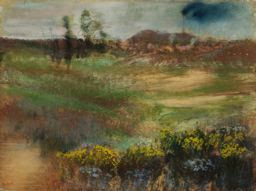 |
| Titian's Pope Paul III and his Grandsons (Museo di Capodimonte) |
Today ARTINFO.com published an article by Noah Charney, ARCA's founder, about a special exhibition at the French embassy in Rome, "Rome's Palazzo Farnese Opens Its Doors to Offer a Rare Glimpse of Renaissance Art Marvels"in the family's former Renaissance home. The Farnese family piqued my interest in 2009 while visiting Napoli's Museo di Capodimonte where paintings by Titian and Raphael depict the life of Alessandro Farnese, cardinal, grandfather, and pope.
Alessandro Farnese, born in 1468, was elected as a cardinal at the age of 25 and fathered four illegitimate children before he was ordained a priest at the age of 51. Reigning as Pope Paul III from 1534-1549, he opened the Council of Trent in 1545 to discuss church doctrine and correct abuses such as the selling of salvation to parishioners; urged a crusade against the Turks; befriended François I (Leonardo da Vinci's last patron); and was unable to resolve Henry VIII's break with Rome over his numerous divorces.
Napoli is a complex city where civilians honk at the carabinieri cars to drive faster, the trash piles up on the street, the archaeological museum displays erotic art from Pompeii, and art works by Caravaggio, on the run from a murder charge in Rome, decorate the chapel of one of the city's charitable institutions. On the top of a hill overlooking the Bay of Naples, the Museo di Capodimonte, the former palazzo of Charles of Bourbon displays the Farnese art and antiquities collection inherited when his mother, Elizabeth Farnese, married King Philip II of Spain in 1715. The second room of the Farnese Gallery has three paintings of Alessandro Farnese: Raphael's Portrait of Alessandro Farnese (1509-1511); Titian's Pope Paul III (1545-46); and Titian's Pope Paul II with his Grandsons (1545 circa).
Alessandro's sister, Giulia, was the mistress of Pope Alexander VI who made her brother cardinal of Santi Cosma e Damiano, an ancient church that included the Temple of Romulus, the best preserved pagan temple of Rome. In 1513, after discontinuing his relationship with the mother of his children, Alessandro Farnese began the planning and construction of one of the grandest residences in Rome, Palazzo Farnese, built of huge blocks plundered from ancient monuments. When he was elected pope, he appointed his teenage grandsons cardinals and employed Michelangelo to complete the third story of Palazzo Farnese. As an art patron, Pope Paul III commissioned Michelangelo for the Last Judgement in the Sistine Chapel; the Conversion of St. Paul and The Crucifixion of St. Peter in his private chapel in the Vatican (the Cappella Paoline), and appointed him architect to the new Saint Peter's Basilica after the death of Antonio da Sangallo. Titian visited Rome in 1545-6 and painted the family portraits.
Pope Paul III died after his son, the Duke of Parma, was murdered during a period of conflict regarding family control of the papal territories. He was buried in St. Peter's Basilica in a tomb designed by Michelangelo. His family continued to amass power and wealth, marrying into nobility and collecting art. His grandson, Cardinal Alessandro Farnese, spent much of his wealth on artistic projects, including building up the largest collection of antiquities in Rome which today composes much of the archaeological museum in Napoli today.


















